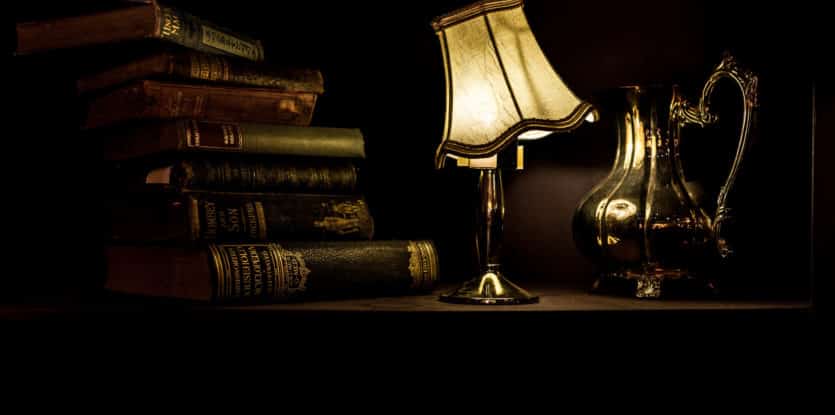Words delivered by Simon Jacobson at the 2nd Annual Gershon Jacobson Memorial Lecture, introducing Dr. Elie Wiesel – June 11, 2007, at the Museum of Jewish Heritage – A Living Memorial to the Holocaust, in NYC
Ladies and gentlemen, rabbonim and rebbetzins, friends, family and people from all over and, of course, our honored and special guest, Dr. Eli Wiesel:
I welcome you to the second annual Gershon Jacobson memorial lecture in honor of my dear father, Gershon. I speak here on behalf of my entire beautiful family, my mother Tzivia, and my siblings, Freida, Boruch Shalom, Chanie and Yosef Yitzchok. Acharon acharon chaviv, Yosef Yitzchak, who assumed the position of editor of the Algemeiner Journal after our father’s passing, and some feel, even though it might sound blasphemous, that he doing a better job than my father himself.
The Rosh Yeshivah of Ponovitch, who was known for his wit and wisdom, was once invited to be the final speaker at a dinner. He began by saying (in Yiddish):
“Morei v’Robbosai. Biz itzt hoben ale redner geredt Torah, ober meinen hoben zei gemeint gelt. Ich vel mit aych itzter redden vegen gelt, ober meinen mein ich Torah.” “All the previous speakers spoke about Torah, but their kavannah, their intention, was really money, raising money for their institutions. I will speak to you about money, but my intention is really Torah…”
There are many people — less than it used to be — who speak Yiddish. They speak Yiddish but their message is an English one, a secular message.
“Ich vel mitd aych itzt reden oif English, ober meinen meine ich Yiddish.” I will now speak to you in English, being that it is the language of our nation (for good or for bad), but my neshamah, my intention – and the soul of this entire evening – is the eternal spirit of Yiddish.
Indeed, when you work hard enough you can convey the Yiddishe neshomo in other languages.
* * *
Yeshaya ha’novi, the great prophet Isaiah, declared: Libcho yehgeh eimoh, ayeh sofer? Your heart will meditate dread, where is the scribe?
What did Isaiah mean with these words? Why should the search for a scribe cause such fear?
A scribe is a storyteller. And to tell a story, to truly tell a story, is not a simple feat.
To understand the power of a storyteller, let us begin with a story. Actually a story about a story. They say that the Baal Shem Tov, the founder of the Chassidic movement, had an interesting custom. Every year right before Rosh Hashanah he would go to a particular area that only he knew, he would light a fire in a special way, and would say a prayer in the his inimitable style. He beseeched heaven to grant a blessed year to the Jewish people and to the entire world.
His student, the Maggid of Mezritch, continued the custom in the next generation. But due to yeridas hadoros (the diminishing spirit of generations), things get diluted and the secrets of the past are lost. The Maggid would go to the same place, but he didn’t know how to light the fire. He would go to the place to say a prayer for a blessed New Year.
The Maggid had many students, and they too inherited this custom. They would also go to the location, but they didn’t know the prayer, nor did they know how to light the fire, so they would just stand there.
What about us today, generations later? We don’t know how to light the fire, we don’t know the prayers, we don’t even know the location. What do we do? We tell the story.
The only power we have is to tell the story. We don’t have more power than that. Thus, by telling the story in our own humble way, standing on the shoulders of giants before us, we can achieve the same results as our parents and grandparents achieved through their powerful revelations.
By no means is telling the story an easy task. Because the Jewish story – and the story of life in general – is a complicated one. It spans thousands of years of history and it spans not only through good times but many difficult times. Times when you don’t want to speak. Times of anguish, when you have no power to speak. And even in the best of times, the beauty may be too intense to ever convey in a story comprised of mere words. Indeed, the story of life – in all its true colors – is almost impossible to capture.
Yet through all the ups and downs, one thing our parents and grandparents were committed to was mitzvah l’sapeir, v’yegadata l’vincha – no matter what, we must always tell the story.
And tell the story they did, in many different ways. By doing so, they ensured that the chain of mesorah would not be broken. In many ways, that’s what kept the people together – their absolute commitment to never allow the story to be forgotten and the chain be severed.
That is why Isaiah the navi lamented, Libcho yehgeh eimoh, ayeh sofer? Your heart will ache with dread, where is the scribe? Telling the story is not an optional pastime; it is a critical need – it is the link that connects the past to the present to the future. So the heart trembles: Will we have a scribe to tell the tale?
It’s relatively easy to tell the story in good times, But in bad times – when we are trembling in fear – Ayeh Sofer?! How can we speak, how can we find the strength to tell the story?
To tell the real story a storyteller must reach into his deepest self, into his soul, into his guts. Often he must tear his insides – his kishkes – open, and release deeply-held secrets. The sofer invests his very essence into the story.
Ayeh sofer? Where will we find a scribe and a storyteller who will capture the essence of the story? It’s hard to find people who can tell the tale. And it’s a difficult task to tell the tale with integrity, with commitment to the past.
“Melech b’yofei techzenoh einecho, tirenoh eretz merchakim,” Isaiah begins. Your eyes will behold the king in his glory, You will see a land from afar.” Then too, your heart will tremble: Ayeh Sofer? Where is there a scribe to tell the story of such beauty? And the story of distant lands?
Yet, the tale must be told. Just as our parents and grandparent passed on the story to us, we must do the same, no matter how hard it may be.
This in essence, my friends, is the mission of the Gershon Jacobson Jewish Continuity Foundation (GJCF) – the sponsor of tonight’s event – which we established after my father Gershon’s passing. My father was one of the great storytellers of our time. His life was dedicated to tell the story, and the story behind the story.
But telling the story is not as simple as it sounds. Ayeh Sofer? The word sippur in Hebrew is more than just more than just “story.” It means sefirah, to count; sapir, to illuminate (like the sapphire stone). Kabbalists will tell you that sefirah refers to the cosmic forces at work.
The Sefer Yetzirah, the Book of Formation begins: With three seforim, with three books did G-d create the universe: b’sefer, b’sofer ub’sippur. With a book, a scribe and a story.
So a story is more than a story. It captures the tear and the twinkle of Jews throughout history. It manifests the highest and lowest points, and everything in between, it reflects not only the dramatic moments but also the seemingly insignificant ones – life in all its nuances, hues and colors. The story is actually a Divine narrative.
We therefore established the GJC Foundation dedicated to continue telling the story with passion, with integrity, without compromising its spirit, and at the same time, in a language that speaks to people of all backgrounds.
So, today, when someone’s heart is concerned with the question Ayeh Sofer? – who will tell the story today while maintaining its personality and soul? We can assure you that the GJCF is committed to do just that.
And we do so, and continue to grow, thank G-d, through five vehicles:
1) The weekly Algemeiner Journal, which we intend to develop so that it can reach audiences far greater than just Yiddish speakers.
2) Our website, Algemeiner.com, which I invite you all to visit.
3) Tools to digitalize and preserve the legacies of people and institutions that have built and shaped Jewish life – continuing to tell the story of the Jewish people in our own time.
4) Publishing materials that help us put life in perspective – like the supplement we distributed tonight – Witness: A pictorial story of forty years since the Six-Day War (June 1967-2007).
5) And the Annual Gershon Jacobson Memorial lecture, delivered by a prominent individual addressing vital issues facing the Jewish people and Israel.
We intend to create more such beautiful evenings that celebrate Judaism in its full glory and majesty, in the greatest way possible, for people of all backgrounds.
I invite you all to partner with us in this effort. Help us tell the story – our story, your story, the story of all the Jewish people, the story of history, the story of G-d Himself. Each person’s story is a Divine narrative, each of our lives another chapter in “zeh sefer toldos odom” – B’sefer, B’sofer Ub’sippur.
The GCJF offers many excellent dedication opportunities that will immortalize your contribution toward perpetuating The Story.
* * *
Dr. Elie Wiesel and my father go back many years, long before I remember. Though they come from different parts of the world, their stories are very similar. Dr. Wiesel was born in Sighet, Romania, pre-World War II in a beautiful town saturated with Yiddishkeit, with the spirit and neshomah of everything Jewish. And then, at the young tender age of 15, together with his family and with hundreds of thousands of others, he was torn away form that pure world.
My father was born close to that time in another city called Moscow. There they had to contend with another monster. At age five my father witnessed his father being arrested by the NKVD, the so-called KGB of the time, and sent off to Siberia.
Both my father and (yibadel bein chaim l’chaim) Elie survived, and they met in the halls of the U.N. Interesting place to meet. They met as journalists, storytellers, but storytellers in the fullest sense of the word.
For ten years, as many of you know, Dr. Wiesel, was silent. He did not tell the story. He was quiet, locked in a self-imposed silence. Shtikeh. And that itself is a story. And then, came the time for him to break his silence and speak. G-d works in mysterious ways, helping people reach and follow their destiny. Dr. Wiesel too was led on a course from silence to words – he began to speak, to write. His first book was in Yiddish, “Un di velt hot geshvigen” (“and the world was silent”). Words, instead of silence, became the story that had to then be told.
As one of the Rebbe’s said, “es iz shver redden; ober es iz shverer shveigen.” “It’s hard to speak, but it’s even harder to remain silent.”
And in such a faithful way, Dr. Wiesel conveyed the story of the world that was before, what happened in between, and the world of today.
These are sacred words, a sacred story, because it actually captures the story of every one here in this room, of every Jew on this planet – an unfolding Divine story.
And so when we are faced with the concern of the prophet Isaiah, Ayeh Sofer, where will we find a person who will tell the story? We can say and be consoled: Thank G-d we have a man like Dr. Wiesel in our midst.
I want you to all join me in welcoming him and honoring him as he honors us, and as he honored my father, two men who shared many similar destinies, and maintained their commitment to the sacred work and the blessings that G-d gave them to tell the story. Yibadel bein chaim l’chaim. Dr. Wiesel should be blessed with many long and healthy years to continue being a sacred witness, a witness in words and in silence.
I have the distinct honor to welcome Dr. Elie Wiesel, who will speak to us, being that it’s 40 years since the Six-Day Way, about remembering the Six-Day War — another major story of our time.
Ayeh Sofer? I present to you Dr. Elie Wiesel.
~~~~~~~~~~~~
Click here for full coverage of the 2nd Annual Gershon Jacobson Memorial Event.







